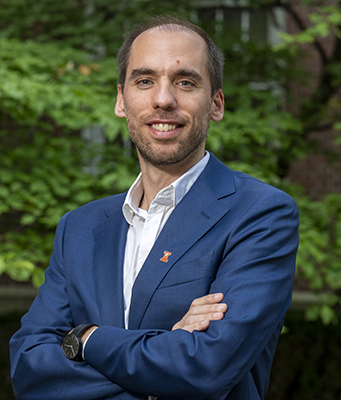Preparing tomorrow’s leaders – today
The Emerging Business Leaders (EBL) program at Gies College of Business is a summer program designed for high-achieving Black, African-American, Hispanic, Latinx/a/o, and Native American students entering their senior year of high school.
2025 Program Dates Coming Soon.
Program Activities
- Interactive discussions featuring Gies Business staff, students, and alumni around career possibilities in business and the Gies student experience
- Work in groups to solve business problems
- Learn about college admissions
- Have fun and make new friends
Application Criteria
The EBL Program is open to underrepresented students entering their senior year of high school. You must have:
- 3.2/4.0 GPA or higher
- Demonstrated leadership through extracurricular, volunteer, or work experiences
- Ability to attend the entire program
Program Benefits
All students who successfully complete the Emerging Business Leaders Program will receive a University of Illinois application fee waiver. Students who apply, are admitted, and enroll into Gies Business will qualify for a renewable scholarship up to $5000 to help cover their academic costs.
Admission to the Emerging Business Leaders program does not guarantee admission to Gies Business and/or the University of Illinois.



